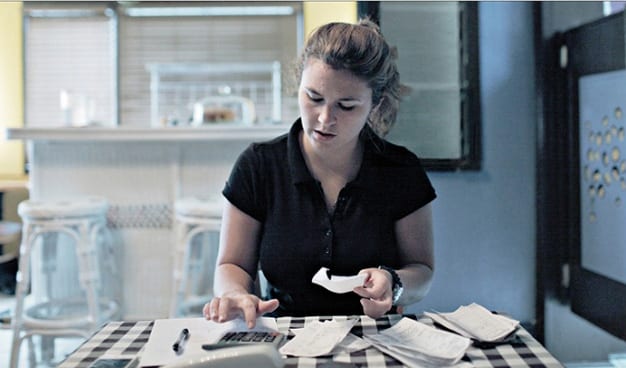
Stress affects women from all walks of life, from Beyonce to the lady at the checkout stand.
In The Shriver Report: A Woman’s Nation Pushes Back from the Brink, a new report released by Maria Shriver and Center for American Progress, new statistics detail several quality of life issues that keep low-income women from getting enough sleep, let alone getting ahead.
The report shows:
+ 40% of all households with children under the age of 18 include mothers who are either the sole or primary source of income.
+ 66% of black children live in high-poverty communities, compared with 6% of white children
+ African American women and Latinas are paid only 64 cents and 55 cents, respectively, for every dollar earned by non-Hispanic white men. The average woman makes 77 cents for every dollar made by the average man.
With stats like this, it’s no wonder that 42% of low-income women experience high levels of stress.
Stress is a very serious issue among low-income women. Very often, stress leads to other health issues, which are compounded when a woman does not have access to quality healthcare. One antidote to stress is self-care, which, unfortunately, many low-income women may say they don’t have the resources to do.
Activist and author Audre Lorde said that self-care is a revolutionary act. Taking care of yourself is an important part of self-love and self-preservation. It also ensures that you can be a better partner, friend, employee, or mother. This is difficult for many women, especially caregivers who are forever forsaking themselves to attend to the needs of others. But self-care is a powerful first step toward demanding that others treat you with care and consideration.
As Community Change begins to fight to raise the minimum wage, we hope that this message becomes clear. Workers deserve the dignity of earning enough to care for themselves and their families. We will be helping workers raise their voices and demand that their elected officials consider their stories and experiences in their deliberations over the minimum wage.
In the meantime, you can help yourself and the people in your life by taking the time to take care of yourself. Think of a few things you can do to prioritize self-care. They can be as small as making your favorite snack or as big as taking a vacation. Then, consider some things you can do every day to practice self-care, such as picking out a fun outfit to wear to work or journaling before going to bed at night.
The Shriver Report said that 75% of low-income women wished they’d made their careers and education a higher priority, 52% regretted getting married, 33% wished they’d delayed having kids or had fewer kids and 73% said they wished they’d made better financial choices.
Encourage the people in your life to do things they enjoy, even when they don’t think they have the time. Encourage a young person in your life to give more attention to themselves and their education, or to be more careful with their financial or relationship choices. Take the time to exercise, or sleep, or pray, or whatever it is that helps you decrease stress in your own life. To win the fight for better wages, we need all of us at our best.
